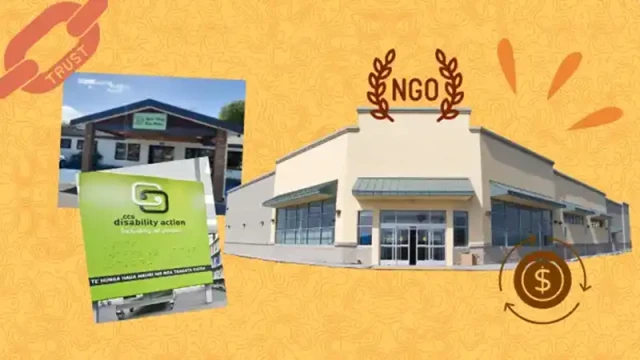Understanding different organisations
When you’re looking for support, you’ll see a whole lot of names for different organisation types. It can get confusing quickly. Read on to find out the differences,
August 9th, 2024

What's the difference between trust, NGOs, Not-for-Profits, and Māori health providers?
When you’re looking for support, you’ll see a whole lot of names for different organisation types. It can get confusing quickly.
We’ve done the mahi to help you solve the mystery. Read on to find out the difference between what Charitable Trusts, NGOs, Māori health providers and not-for-profits are all about:
What is a Charitable Trust?
A charitable trust is an organisation set up to support specific or charitable causes like disability services. They are usually governed by a board of trustees, who ensure their funds are used for their intended purposes. Charitable trust gets their funding by contractual agreements from local or national governments, as well as grants and donations.
What can you expect?
Charitable Trusts support people by providing resources, training and networking opportunities within our disability sector. Your Way Kia Roha is a Charitable trust helping disabled people thrive, living the lives they choose in their communities.
What are NGOs (Non-Governmental Organisations)?
NGOs are groups that work independently from the government to tackle important social issues. They often rely on donations, grants, and volunteers. NGOs can be big and international, or small and local, but they all focus on making a positive impact.
What can you expect? NGO’s can run programmes and services that try and make change for our disabled community. An example is CCS Disability Action. They are set up to provide disability support and advocacy for our disabled community.
What is a not for profit?
Not-for-profits are mostly focused on delivering a community service rather making money. They usually depend on donations, grants, and sometimes Government support. Any money they make is reinvested into their mission rather than distributed as profits.
What can you expect? Not-for-profits can be small community groups or larger organisations. They may be involved in a range of activities, including service delivery and advocacy. Disabled Person’s Assembly is a not-for-profit organisation dedicated to bringing disabled people together and shape their collective input in a way that drives system level change.
What is a Māori health provider?
Māori providers are a Māori governed organisation set up to support people with their health and disabilities, to both Māori and non-Māori. They receive funding from our government particularly through agencies like Whaikaha – Ministry of Disabled People. Or from Iwi (tribal) organisations, NGO’s and community fundraising.
What can you expect? What makes Māori health provider care different is the kaupapa (topic/initiative) delivery framework. They use a range of culturally specific and traditional Māori intervention practices. An example is Kāpō Māori Aotearoa. They porting disabled people, tāngata whaikaha Māori and their whānau to attain whānau ora and be strong self-advocates and leaders in their communities.